Multiplier events happening in 4 partner countries
End of June and begginning of July was dedicated to Multiplier events happening in 4 partner countries: Lithuania, Slovenia, Greece and Portugal. The main objective of these events was to share the results of the international project SparkDigiGirls and present created new program Unleash your creativity with IT.
Events were a great success as more than 100 participants have attended. Participants ranged from teachers, school staff to representatives of various IT organizations, youth workers and girls. Partners from Portugal had a full day of activities, where first part of the day was dedicated to presented technologies: AR, robotics and etc. While afterwards round table discussion and various presentations followed. Lithuanians, Slovenians and Greeks also had presentation dedicated to the project SparkDigiGirls and other similar initiatives for girls to encourage their interest in technologies and choose their path in STEM after graduating high school. All countries had fruitful discussions which continued after the event as well.
Unleash your creativity with IT program is available for girls, youth workers and anyone interested. It can be found at: https://moodle.digigirls.eu/
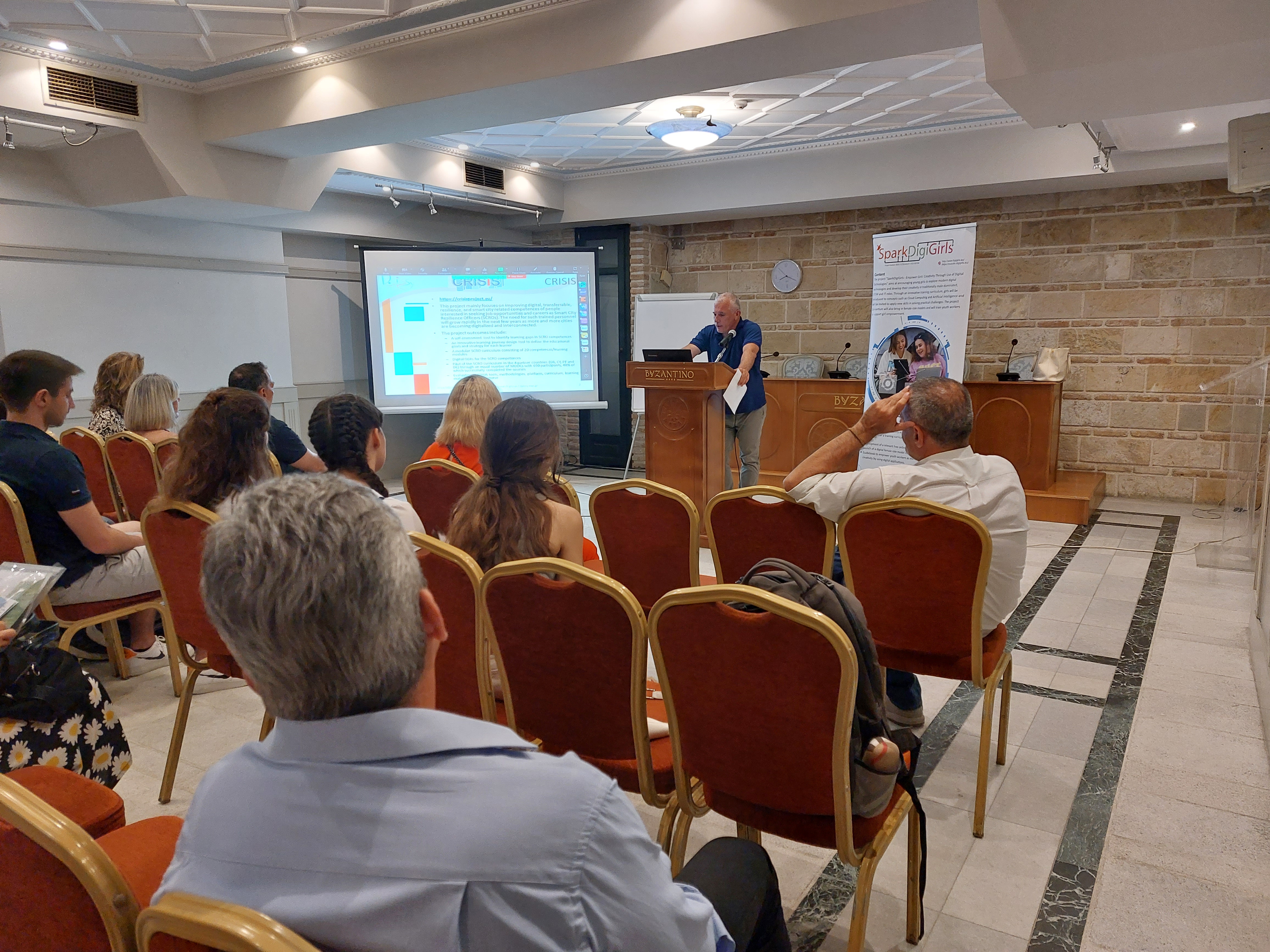
The three most prominent messages of the event
✅ IT is one of the most open fields for both girls and guys.
✅ Underneath the IT sector there are many different and creative jobs.
✅ It is worthwhile for non-formal education providers to make efforts to find and develop new teaching tools that show the younger generation how technology works and what it can be used for.
29 June The RIAP Association invited representatives from various fields to an event on "How to use technology to develop a creative young generation of girls". The two-year international project "Unleash your creativity with technology (SparkDigiGirls)" and its results were presented to the gathering of IT teachers, representatives of municipalities, IT companies, universities and other non-governmental organisations.
The project team sought to answer the question of why girls are losing interest in technology and came up with a range of solutions, from research to the development of a new non-formal education curriculum, "Unleash your creativity with technology". This distance learning programme is one of the key results of the SparkDigiGirls project. It offers a unique approach, combining several different technologies to find solutions to relevant life situations that young people often face.
The distance learning programme is designed for non-formal education, but can also be used in formal education settings. The aim of the programme is to help girls aged 14 years and older ('learners') to creatively and innovatively address different situations in their daily lives through technology and to make them more attractive to girls.
The distance learning programme consists of 16 distinct learning strands called Challenges. Each challenge covers a specific topic or area of interest to girls aged 14+. For example, fashion, design, the environment, cooking, art, etc. Each challenge has two main interlinked components: technology (artificial intelligence, augmented reality, internet of things, coding, 3D modelling and printing, cloud computing, blockchain) and real-life situations/problems that young girls face in their daily lives. For example, how to make a birthday present in 3D, how to design clothes using coding, how to create a CO2 footprint, how to create a culinary website, how to create your own NFT and many other interesting challenges.
The event also showcased initiatives and projects that engage and teach girls to use technology in a meaningful way.
Link to the distance learning programme: https://moodle.digigirls.eu/.
Project Youtube channel: https://www.youtube.com/@SparkDigiGirls1
Project Instagram account: https://www.instagram.com/sparkdigigirls/
#SparkDigiGirls; #Erasmus
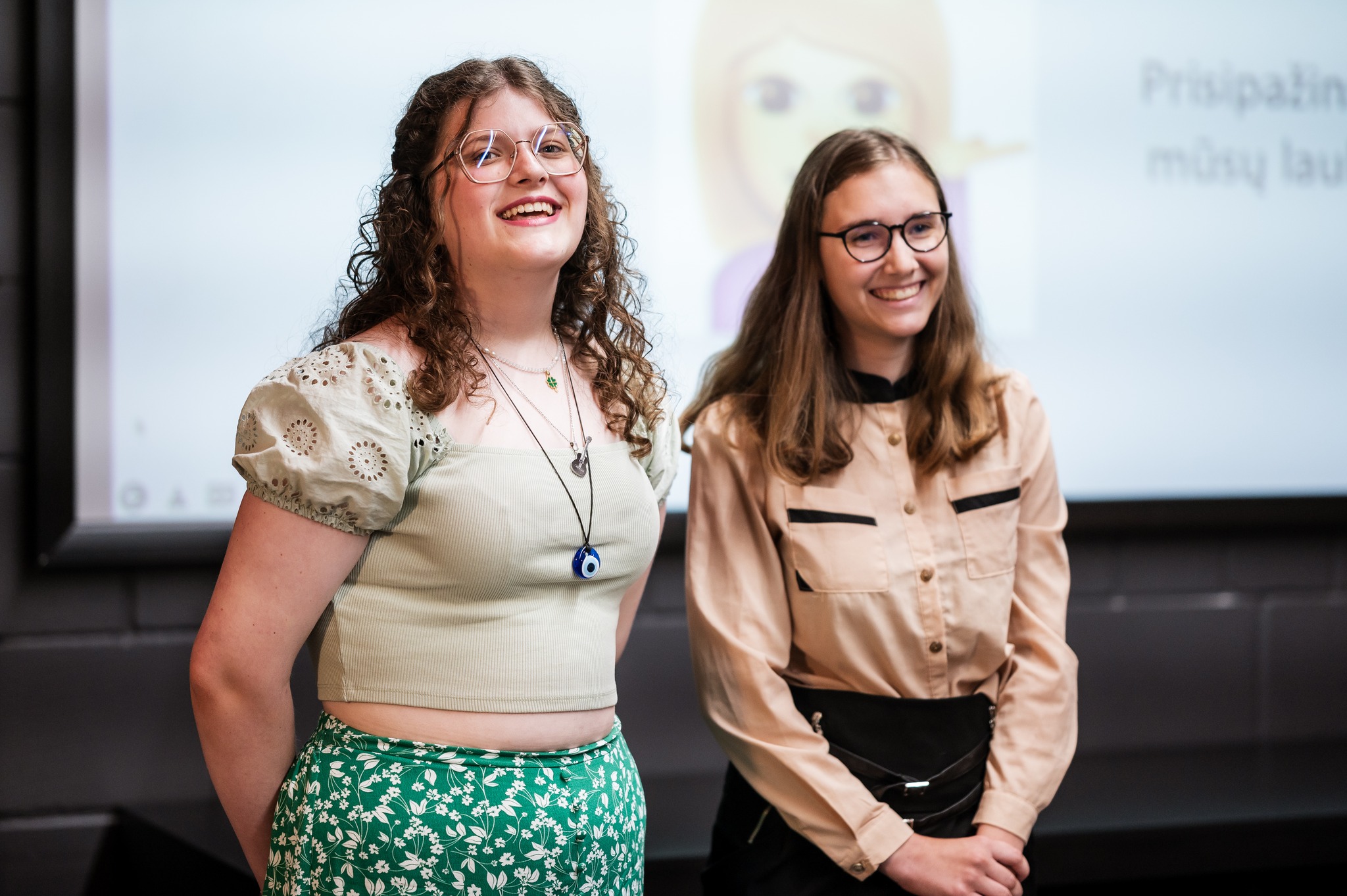
"Spark IT up!" training in Slovenia
From 24-28 April this year, 16
girls and 8 youth workers from Lithuania, Slovenia, Portugal and Greece took
part in the five-day "Spark IT up!" Ljubljana, Slovenia. This
international learning training activity is one of the last planned activities
of the project SparkDigiGirls www.digigirls.eu.
The main objective of this
learning activity was to empower girls and youth workers on how to become
ambassadors and flag-bearers of the newly developed distance learning programme
Unleash Your CreativITy with Technology in their own communities, and how to
get as many girls as possible interested in the world of technology.
All five days of the training
went by in a flash. It was of utmost importance to the organisers to create a
friendly and open environment for all members of the group from the very first
minute of the training. Therefore, the first day of the training was dedicated
to getting to know the participants and creating a safe space for learning.
Using different youth work methods, the girls and youth workers introduced
themselves and got to know each other. The second day of the training included
a presentation of different digital technologies such as artificial
intelligence, 3D printing, augmented reality and other technologies.
Participants also visited the Jožef Stefan Institute, one of the most renowned
research institutes in Slovenia. There, they heard a lecture on artificial
intelligence, how it is changing our world and were invited to try out
chemistry experiments. On the third and fourth days of the training, the
participants, divided into different teams, focused on creative tasks. The aim
of the tasks was to come up with creative solutions for each of the partner
countries on a given topic and the proposed technologies, such as AR, AI, cloud
computing, etc. The girls came up with some great stuff. For example, they
created a modern prototype of an ancient Greek shoe using artificial
intelligence applications and uploaded a text and image using an augmented
reality application. Using the Scratch programming environment, they created an
interactive recipe for the Lithuanian dish "Šaltibarščiai". During
the training, the girls were also invited to learn about Arduino
microcomputers, how they work and what they can be used for. This activity was
presented by the representatives of the "Girls do code" academy in
Slovenia. The last day of the training was dedicated to the creation of digital
content, the evaluation of the training, the awarding of certificates to the
participants and a farewell party.
At the end of the training
activities, the girls and youth workers were asked to fill in a training
evaluation form. The evaluations show that the training was successfully
implemented. In their evaluations, the participants stressed the usefulness of
technology in finding solutions in real-life situations. "Through this
project, I realised that the IT world is very diverse. I learnt a lot of new
things: augmented reality, 3D modelling and printing, graphics, video editing
and even programming. And what surprised me the most was that everything is not
as complicated as it seemed. You just need do not afraid, try and it will all
work out. It was fun!" (Lithuania).
Participants also made meaningful
connections and had great moments during the training and met their peers from
different European countries. "It was so exciting when we found out that
our team had won the competition and would be going to Slovenia! It was my
first trip abroad and I had such a great time interacting and collaborating
with girls from Portugal, Greece and Slovenia." (Lithuania). "The
SparkDigiGirls project will remain in my memory and in my heart. It gave me a
lot of useful knowledge, helped me improve my teamwork skills and introduced me
to other cultures. I am very grateful for the opportunity to learn and discover
so many useful things" (Greece).
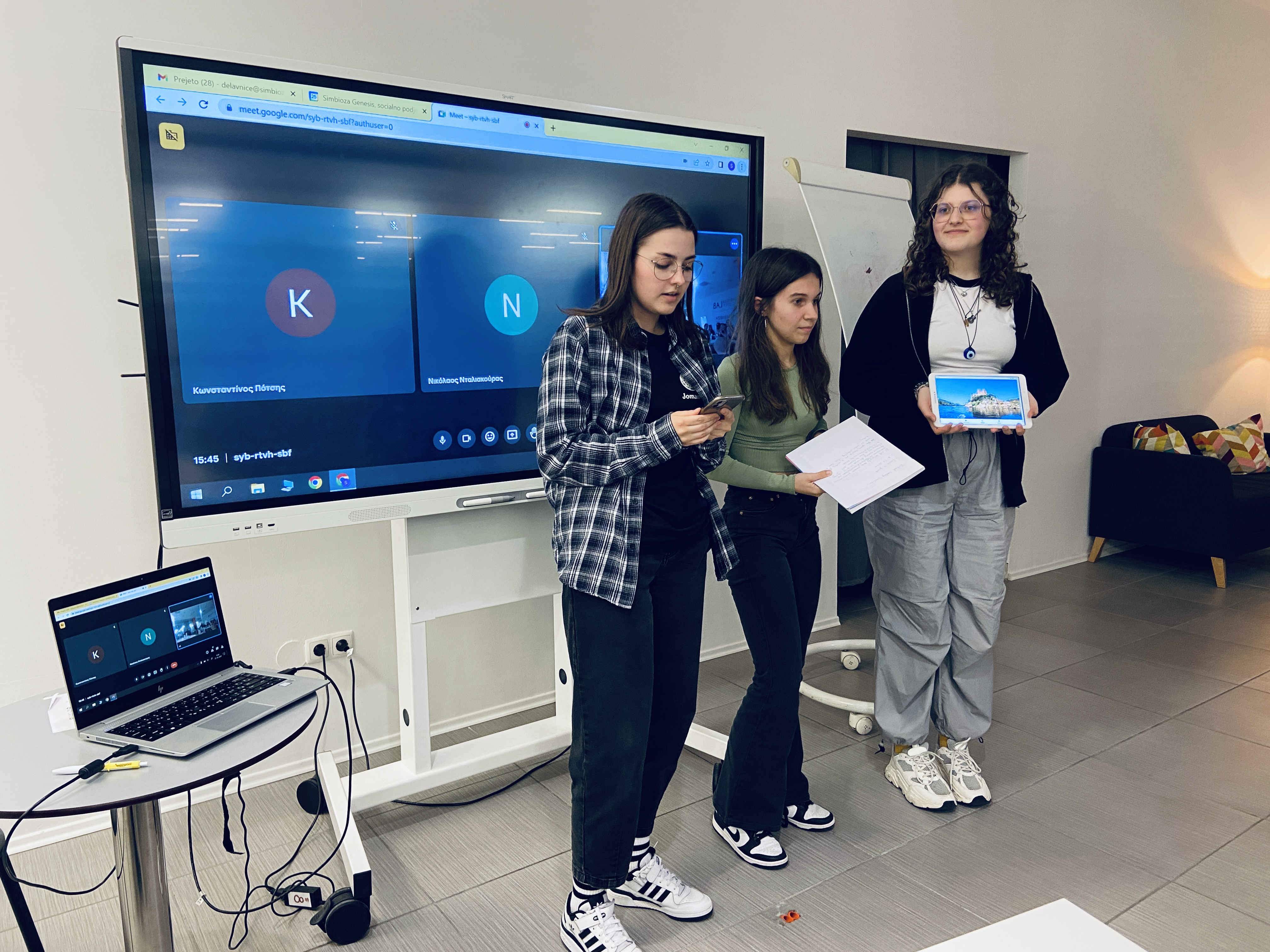
How can we increase girls' interest in the world of technology at school?
How can we increase girls' interest in the world of
technology already at school?
The European Year of Skills officially
started on 9 May 2023. To contribute to skills development the Digital Skills and Jobs Platform team,
together with the European Commission (EC), organised an award competition and
selected the project Empower Girls’ Creativity Through Use of Digital
Technologies (SparkDigiGirls, www.digigirls.eu) as a finalist for the European
Digital Skills Awards 2023 in the category Youth in the digital world. This is
one of the five categories announced, with a total of 330 applications for this
competition.
"Our project is unique because it combines
three different elements: technology, creativity and girls. We are very proud
of the EC assessment. We are the only one from Lithuania to make it to the
finals," says Laura Grinevičiūtė, director of the Rural Internet Access
Points Association.
This award confirms the relevance of the chosen
project theme - the under-representation of girls in IT. According to Eurostat
2021 data, women represent only 19% of all IT students in the EU. In Lithuania,
the proportion of women studying IT is around 23%, in Greece 21%, in Portugal
20% and in Slovenia 17%.
The main reasons influencing low interest of girls
in technologies
Research has shown that in primary education, boys
and girls are almost equally likely want to work in technology-related fields.
However, girls' attitudes and opinions change later in life and they are more
likely to choose careers in the social sciences, humanities and medicine than
in IT, engineering or mathematics.
There are many reasons for the lack of interest in
IT. Negative beliefs and stereotypes about technology, such as "IT is a
man's job", "IT is just coding", influence girls' choices.
The lack of examples of successful women in IT also
contributes to girls' low interest in IT. In addition, girls do not understand
the opportunities offered by the IT sector and therefore do not take advantage
of them. "Girls think that people who work in IT sit in front of a
computer screen from morning until late at night and code. But this is a myth.
There are many different and creative jobs in the IT sector, such as graphic
designer, data analyst, engineer, IT project manager, etc.," says Renata
Danielienė, a lecturer at the Kaunas Faculty of Vilnius University.
Technology can help unleash creativity
In response to the need to increase girls' interest
in the world of IT, partners from Lithuania, Portugal, Slovenia and Greece have
launched a two-year international project funded by the Erasmus+ Strategic
Partnership Programme for Youth.
The project aims to engage girls aged 14 and over
in the latest technologies (such as artificial intelligence, augmented reality,
Internet of Things, programming) by integrating a creative approach and
demonstrating how technology can be used in everyday activities.
Programme Unleash Your CreativITy with technology
The project developed online learning programme Unleash Your CreativITy with Technology.
The aim of the programme is to engage girls aged 14-18 in a hands-on,
experiential learning model to solve various life situations and problems
through the practical use of modern technologies such as artificial
intelligence, augmented reality, programming, blockchain and cloud computing.
"Today, we are witnessing an evolution from
complex programming languages to intuitive systems that do not require deep and
prior knowledge. This is the model we have chosen for this project. Online
tools, apps and mobile applications help to increase girls' motivation to
learn, creativity, interest in technology and understanding of its practical
benefits," says Renata Danieliene.
Between January and March this year, 279 girls from
Lithuania, Portugal, Slovenia and Greece took part in the pilot training of the
app. The distance learning programme consists of 16 separate learning paths, called
challenges. Each challenge covers a specific topic or area of interest to girls
aged 14 and over. For example, fashion, design, environment, cooking, art, etc.
Each challenge has two key interwoven components: technology (artificial
intelligence, augmented reality, internet of things, coding, 3D modelling and
printing, cloud computing, blockchain) and real-life situations/problems that
girls face in their everyday lives. For example, how to make a birthday present
in 3D, how to design clothes using programming, how to learn about carbon
footprint, how to create a culinary website, how to create your own NFT and
many other interesting challenges.
Each challenge is implemented with specific steps.
The girls are introduced to almost 30 different online tools, apps and mobile
applications. By following the steps and interactive tasks, they will know
exactly where to start and how to complete the challenge. The programme is
available free of charge to all registered users via the Moodle platform in up
to five languages.
What
does it take to change girls' attitude?
In addition to online learning programme, the
project partners organised a number of engaging activities. "During the
project, it was very important for us to show girls that there are women
working in IT. We made videos, organised different discussions in schools,
organised online events, international learning activities, managed an Instagram
account so that girls could get to know the women, their stories, interesting
jobs, specialities in IT, etc." - Says Laura Grinevičiūtė, director of the
association.
We hope that the results of the project will help
to break down prejudices and stereotypes and increase girls' interest in the
world of technology.
.png)
Visit to Kelme
The RIAP Association team was delighted to meet the girls taking part in the challenge of the remote programme Empower Girls Creativity Through Use of Digital Technologies (SparkDigiGirls). This time we met the girls in Kelme, at the J. Graičiūno gymnasium. We also invited the other participants from Kražantė pprogymnasium to this school.
We talked about how the girls are doing with the challenges, which technologies are the most interesting and which are the most difficult. It turns out that the girls were interested in augmented reality tools such as ScatchAR, Artivive and the artificial intelligence applications Aiva and HitPaw. They learnt about these tools for the first time and tried them out in practice by completing different challenges. The 3D modelling and printing challenges proved to be among the most challenging. It's a fun idea to create a 3D gift for a friend on your own, but you need to work and "tame" the 3D modelling programmes and 3D printers.
We share the work from the challenges on our Instagram account SparkDigiGirls. Join in!
International project funded by #Erasmus
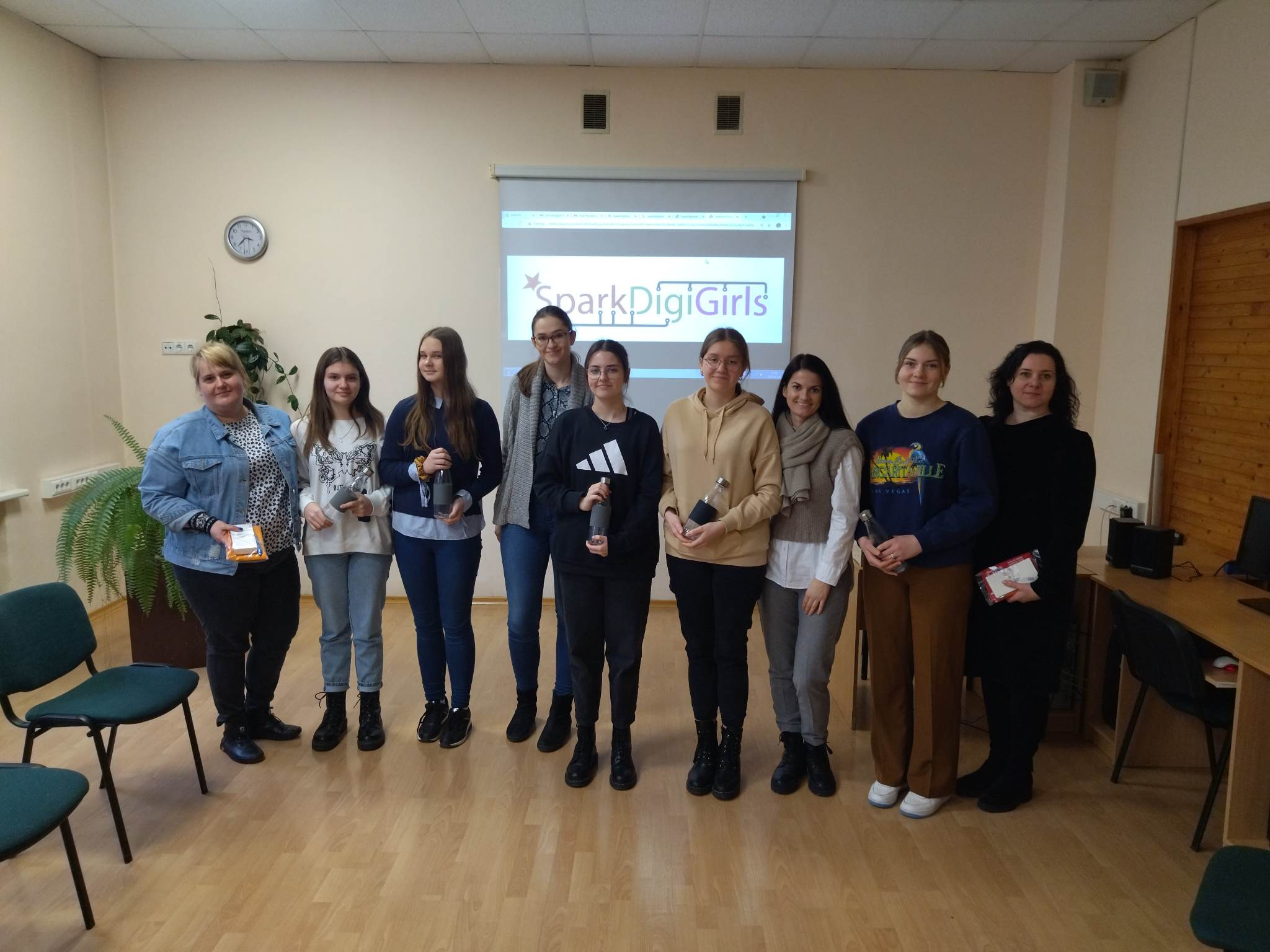
Don't fall for online scams!
Safer Internet Week continues this week in Lithuania and across Europe. On 8 February, the RIAP Association together with its partner the Institute of Information Technology organised an international remote hackathon. It invited participants from Slovenia, Lithuania, Greece and Portugal to join the SparkDigiGirls project. More than 200 girls are currently trying out the newly developed "Technology Unleashes the Imagination" programme.
Between January and March, the girls take part in this programme, where they complete challenges that test technologies such as artificial intelligence, augmented reality, the Internet of Things, coding, 3D modelling and printing, cloud computing, blockchain. They learn how they work and, most importantly, how they can use them in their daily lives.
This time, in celebration of Safer Internet Week, the girls were invited to try out various interactive activities related to Internet safety. They rewrote situations with the help of Emogi, searched for answers to questions related to online fraud during a quiz, and tried a whole range of new tools such as slides, jumbo boards and others.
You can follow the girls' challenges and work in progress on the SparkDigiGirls Instagram account.
.png)
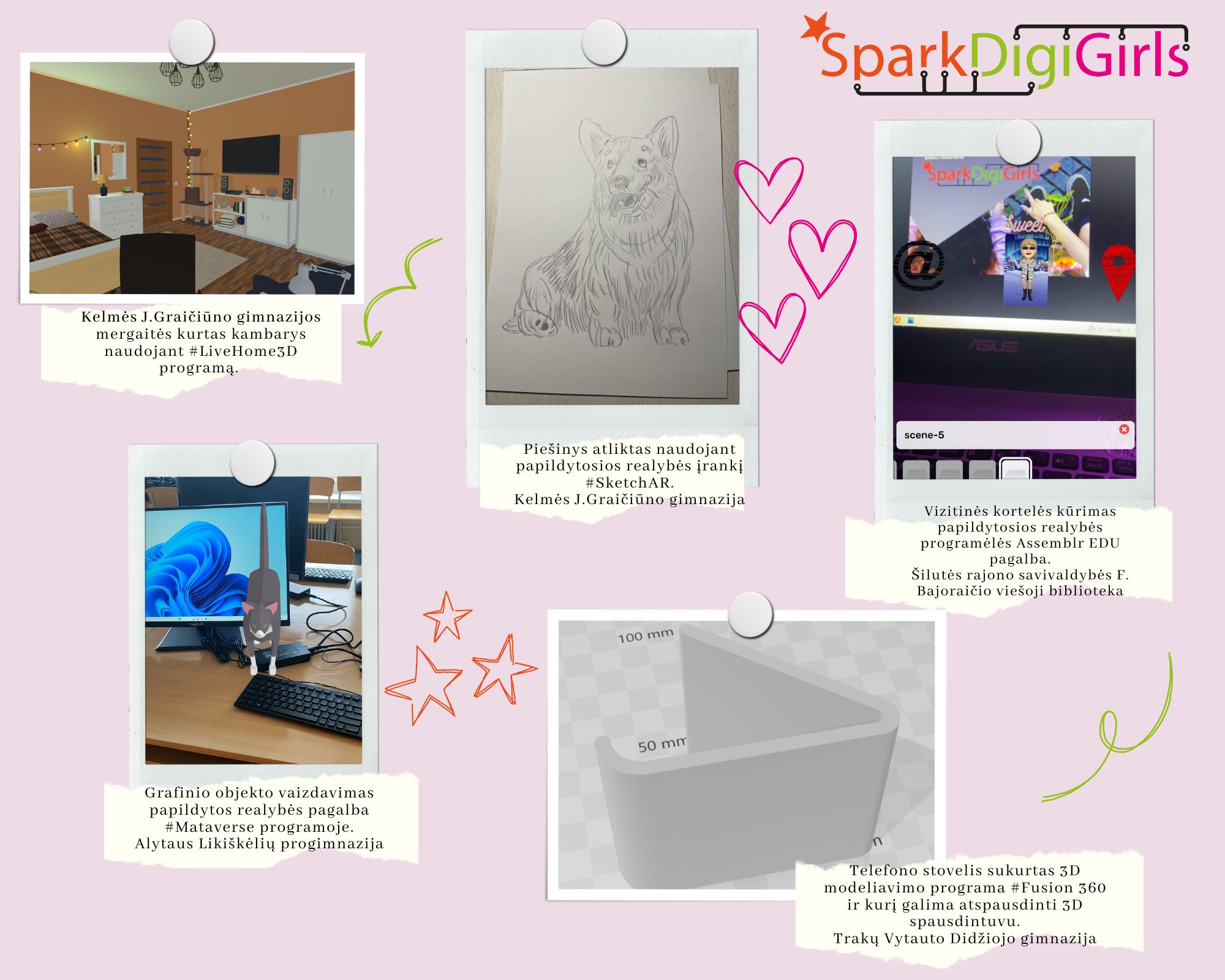
Testing of the remote program "Unleash creativITy with technology" created during the project "SparkDigiGirls" has begun
This week, 50 curious girls from 6 different
Lithuanian high schools and 3 public libraries joined the test of the remote
program "Technology liberates imagination" created during the
"SparkDigiGirls" project.
By participating in this program, girls will open up the
possibilities of creativity and technology.
By completing the challenges, they will learn about
technologies such as artificial intelligence, augmented reality, Internet of
Things, programming, 3D modeling and printing, cloud computing, blockchain. You
will learn how they work and, most importantly, how you can use them in your
everyday life.
The project is financed by the Erasmus+ strategic
partnerships program and is implemented in Lithuania, Portugal, Slovenia and
Greece.
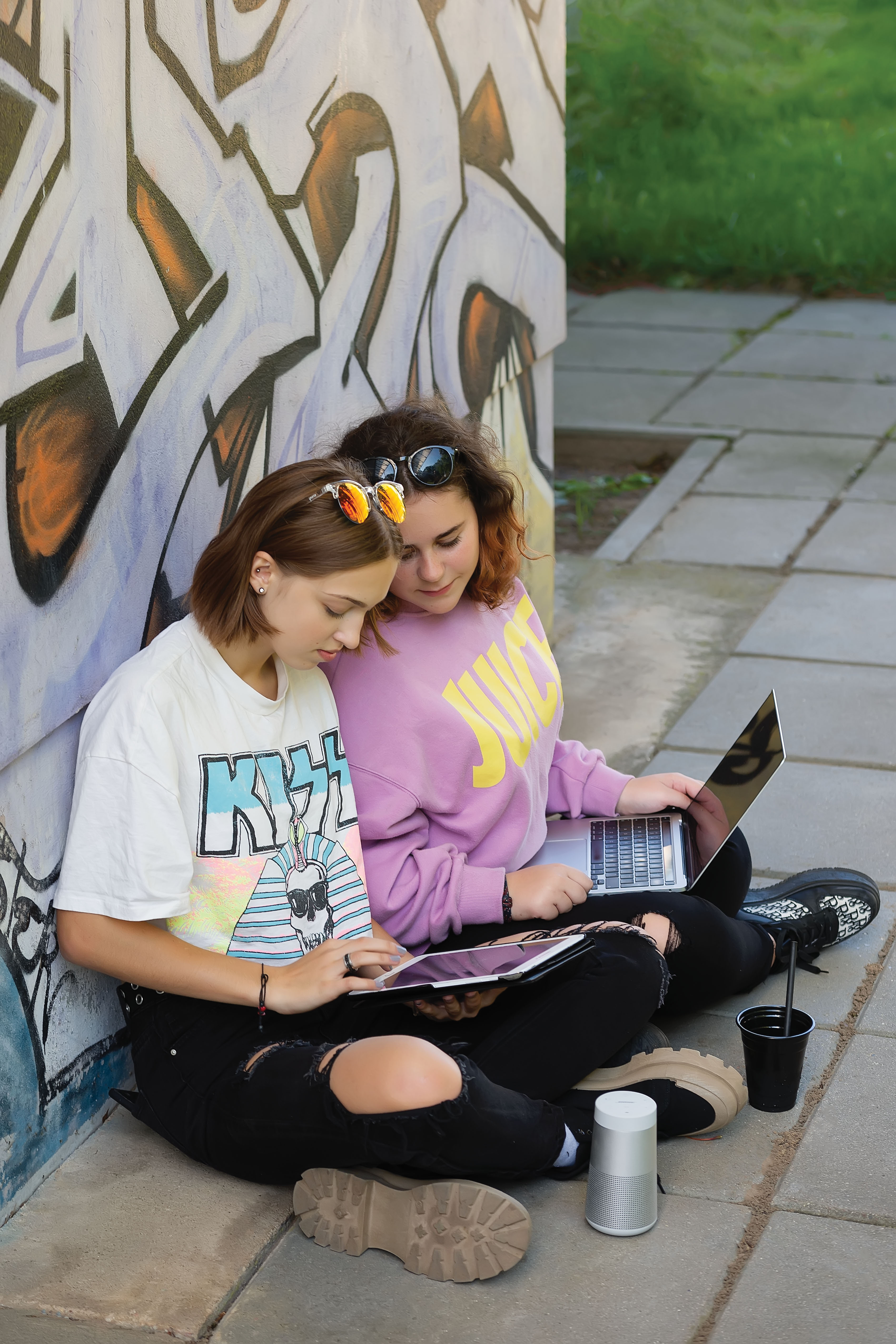
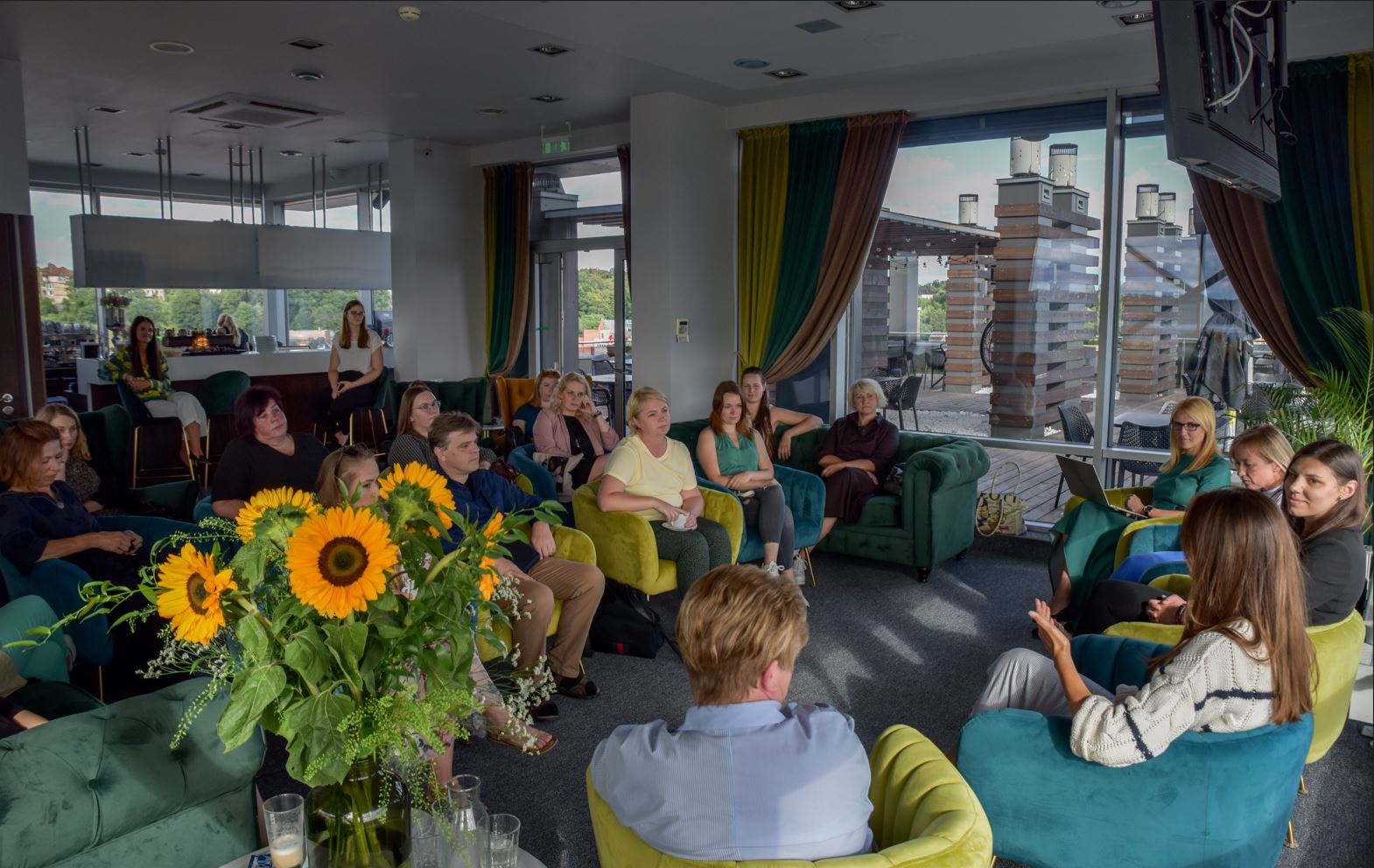
Technology unleashes creativity
In the first days of autumn, partners of the SparkDigiGirls project took part in the third partner meeting in Portugal. Tomar, a tourist and cultural city, is home to the Tomar Vocational Training Institute.
The two-day meeting was aimed at familiarising the participants with the activities of the vocational training institute, the smart laboratories located there, testing the innovations developed there, discussing the results of the project, and planning future works. A newly developed distance learning course Unleash Your CreativITy With Technology for
young and curious girls was presented. Girls aged 15-18 will be exposed to the possibilities of technology through the training programme. Through completing the challenges, they will learn about technologies such as artificial intelligence, augmented reality, the Internet of Things, programming, 3D modelling and printing, cloud computing, blockchain, how they
work and, most importantly, how they can be creatively used in girls’ everyday life.
The pilot training of the Unleash Your CreativITy With Technology distance learning programme will start in January next year. In this autumn, there will be an active preparation phase to select the youth workers and girls who want to participate in the training. There will be events and campaigns inviting young people to join the project activities. A total of 200 girls and 50 youth workers from Slovenia, Lithuania, Greece and Portugal will be able to test and evaluate the course.
The international project is implemented by Simbioza from Slovenia, Hellenic Open University from Greece, the Institute of Information Technology from Lithuania, the Tomar Vocational Training Institute from Portugal and managed by the Association Rural Internet Access Points from Lithuania. The project is funded by the Erasmus+ Strategic Partnerships for Youth Programme
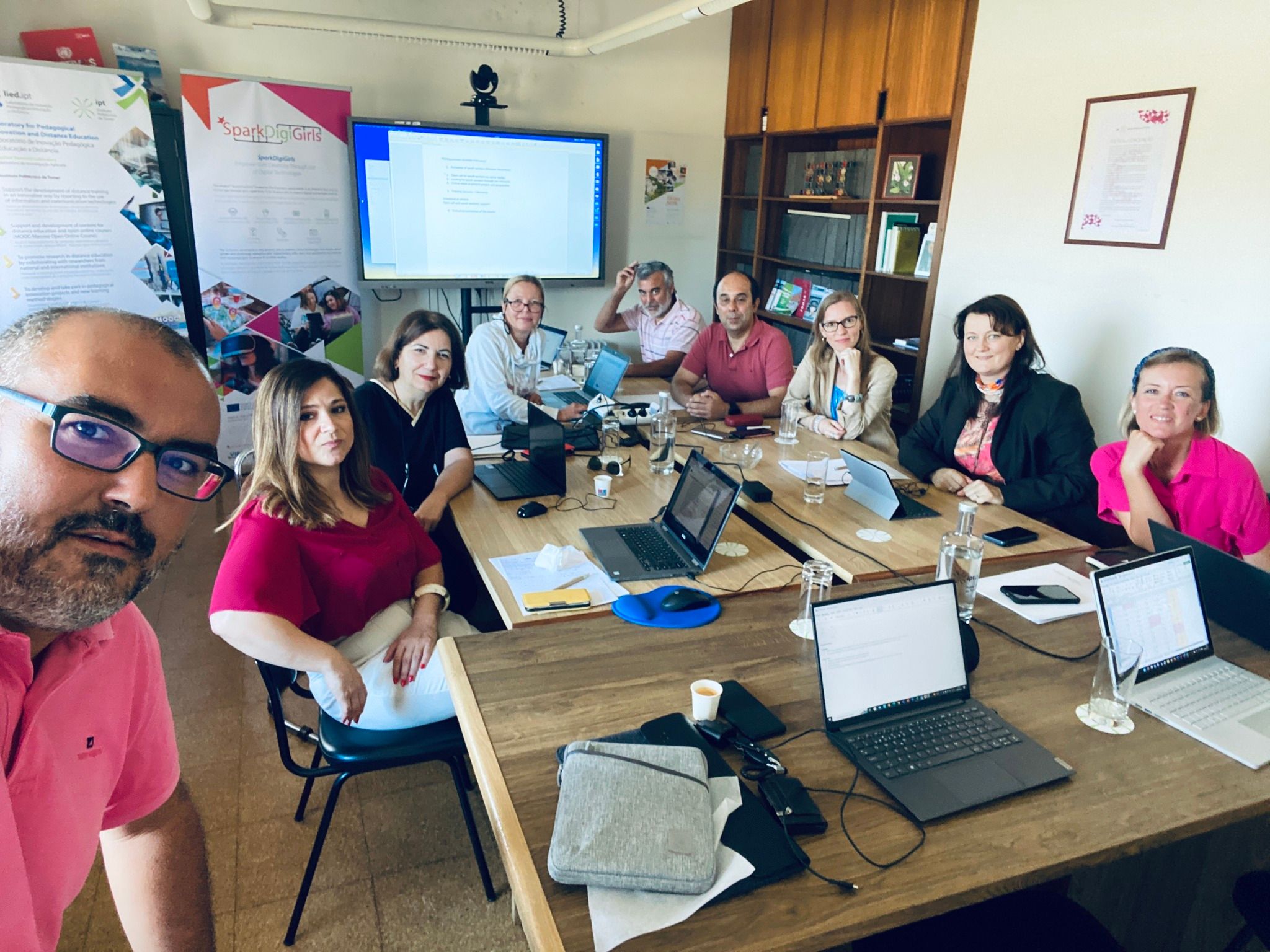
smile and good mood lives here
"Leader, will you organise a camp next year?" "Leader, I'll be 14 next year, will you accept children of that age for the camp? ", "Boss, I have already booked a place for next year". These and other questions were the end of the children's summer camp "Vacation smart and creative" organised by the association "Public Internet Access Points".
This year, as part of the "TAPK2" project funded by the Education Exchange Support Fund, the VIPT Association invited 37 children to a seven-day camp in the heart of Varniai. "We are already organising the eighth season of summer camps and we are very happy that we are receiving not only new arrivals, but also children returning to the camp for the second, third and fourth time," says the organisation's director Laura Grinevičiūtė. - Very often parents read the advertisement about the camp and are scared by the IT activities, thinking that their child will spend the whole day in front of the computer. But this is a misconception. The main goal of the camp is to enable a young person to develop his or her personality not only through technology, but also through a variety of educational, creative and teamwork-enhancing activities," adds the Director.
The seven-day camp programme is designed to ensure that children are not bored. During the IT activities, the campers created a game with Scratch, tried out various augmented reality tools such as Assembler and created interactive greetings with Canva. In addition to the IT activities, a lot of attention was paid to various creative explorations. During these activities, the children learnt how to work in teams, make decisions, find ideas and resolve conflicts. Building bridges with tools found in nature, building the tallest marshmallow tower, searching for treasure in Varniai are just some examples of teamwork. And then there are various educational activities, such as learning to write in Samogitian, drawing on a bag, searching for the most precious Lithuanian flower in the Cloud Forest, meeting the Riflemen, events, dances and other fun activities.
"For my son Tomas, this was the first overnight camp", says Liubovė, the mother of the camper Tomas. He came home with great emotions and impressions. Even now, at the end of the camp, he still remembers and tells us new things about the camp, the activities and his friends. I am also happy to have discovered this camp," adds Liubovė.
.png)
RIAP Association organises a series of remote meetings "Afternoon Discussions"
As part of the international Work in Tech project, the RIAP Association is organising a series of remote meetings called "Afternoon Discussions" for female participants. During these discussions, we invite IT and non-IT professionals to share their knowledge and experience. During the first meeting with psychologist Jūrate Bortkevičienė, we talked about the job search in IT, women's expectations of themselves and ways to overcome fears and achieve what they want.
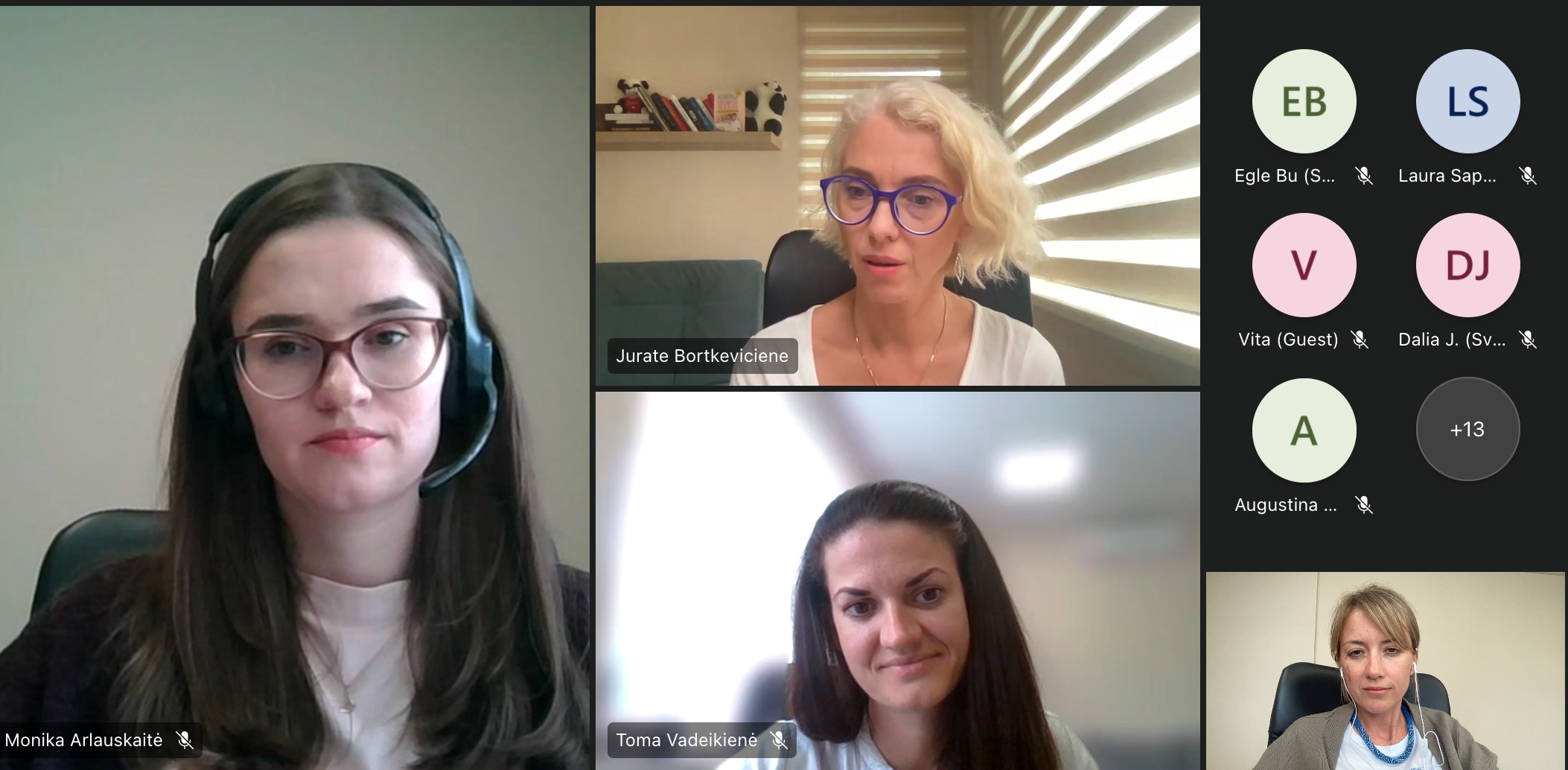
1st International Staff week - Higher education for global understanding
Célio Gonçalo Marques, director of the Laboratory of Pedagogical Innovation and Distance Education (LIED) and professor at the ICT Unit of the Polytechnic Institute of Tomar, participated as an invited speaker through videoconference, in the 1st International Staff week - Higher education for global understanding, with the communication: "The use of digital technologies to develop girls' creativity: paths and practices in Greece, Lithuania, Portugal, and Slovenia", which took place in Tomar on 9 June 2022. The communication focused on the Erasmus+ project “SparkDigiGirls”, which aims to Empower Girls’Creativity Through the Use of Digital Technologies.

One-day technology camp at the Šiauliai Povilas Višinskis Library
On 28 April, the RIAP Association invited teenage girls to a one-day technology camp at the Šiauliai Povilas Višinskis Library on the occasion of the International Day for Girls and Technology.
The camp was organised within the framework of the international project "Girls in the Digital World: Smart and Creative" (SparkDigiGirls), funded by the Erasmus+ Strategic Partnership for Youth Programme.
The project aims to encourage girls to explore digital technologies and to offer ideas for a new and creative approach to a tech field still dominated by men.
"Girls have a good understanding of how Tik Tok, Snapchat, Instagram, reading e-books and surfing the web work. But what they lack is information on how different technologies can be useful in their daily lives," says Laura Grinevičiūtė, Director of the RIAP Association, adding that her organisation is currently working with partners to develop educational materials aimed at allowing girls to use their imagination to explore technologies such as artificial intelligence, 3D printing, augmented reality, coding and so on in real-life examples. Such hands-on experiences could, she said, increase girls' interest in IT while they are still at school.
During the camp, the teenage girls tried out a newly developed coding activity with Scratch. They created a game to virtually model a garment they wanted. Using their imagination and coding tools, the girls managed to create some great and original works.

Did you know that...*
Did you know that...*
In primary school, boys and girls are almost equally likely to want to work in a science-related field. However, in older grades, girls' attitudes and opinions are changing, and they are more likely to choose careers in social, environmental and medical fields over science, technology, engineering and maths (STEM) and ICT studies.
This is due to preconceptions, lack of role models and other reasons that limit girls' ability to fully benefit from the opportunities offered by digital transformation.
The RIAP Association, together with partners from Lithuania, Portugal, Slovenia and Greece in the international project SparkDigiGirls, is looking for solutions to how IT careers and interest in technology should be developed while still in school.
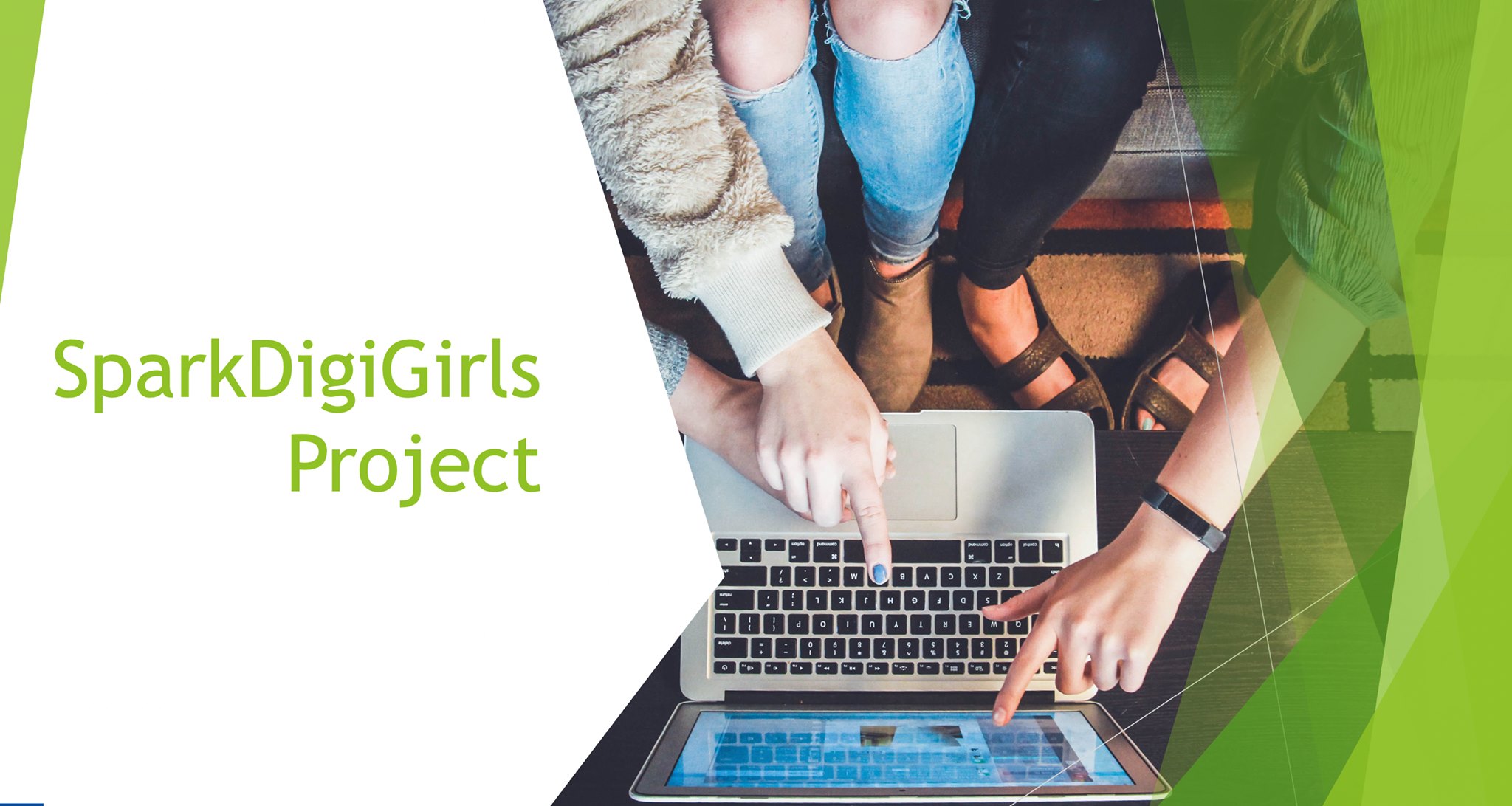
SparkDigiGirls partner meeting
The RIAP association is launching the 2-year Erasmus+ Strategic Partnerships funded project "Creativity and Digital Technology Skills for Girls". According to statistics, only 9% of girls choose STEM studies after leaving school. What's more, around 40% of school-age girls think that technology is not for them.
To challenge existing stereotypes and strengthen girls' interest in digital technologies, the Association, together with partners from Greece, Slovenia, Lithuania and Portugal, will encourage girls (aged 15-18) to engage with technologies such as Virtual Reality, Artificial Intelligence, the Internet of Things and learn how to use them creatively in everyday life situations.
The meeting of the two partners, on 20 and 24 May, focused on the project, its progress and upcoming activities.
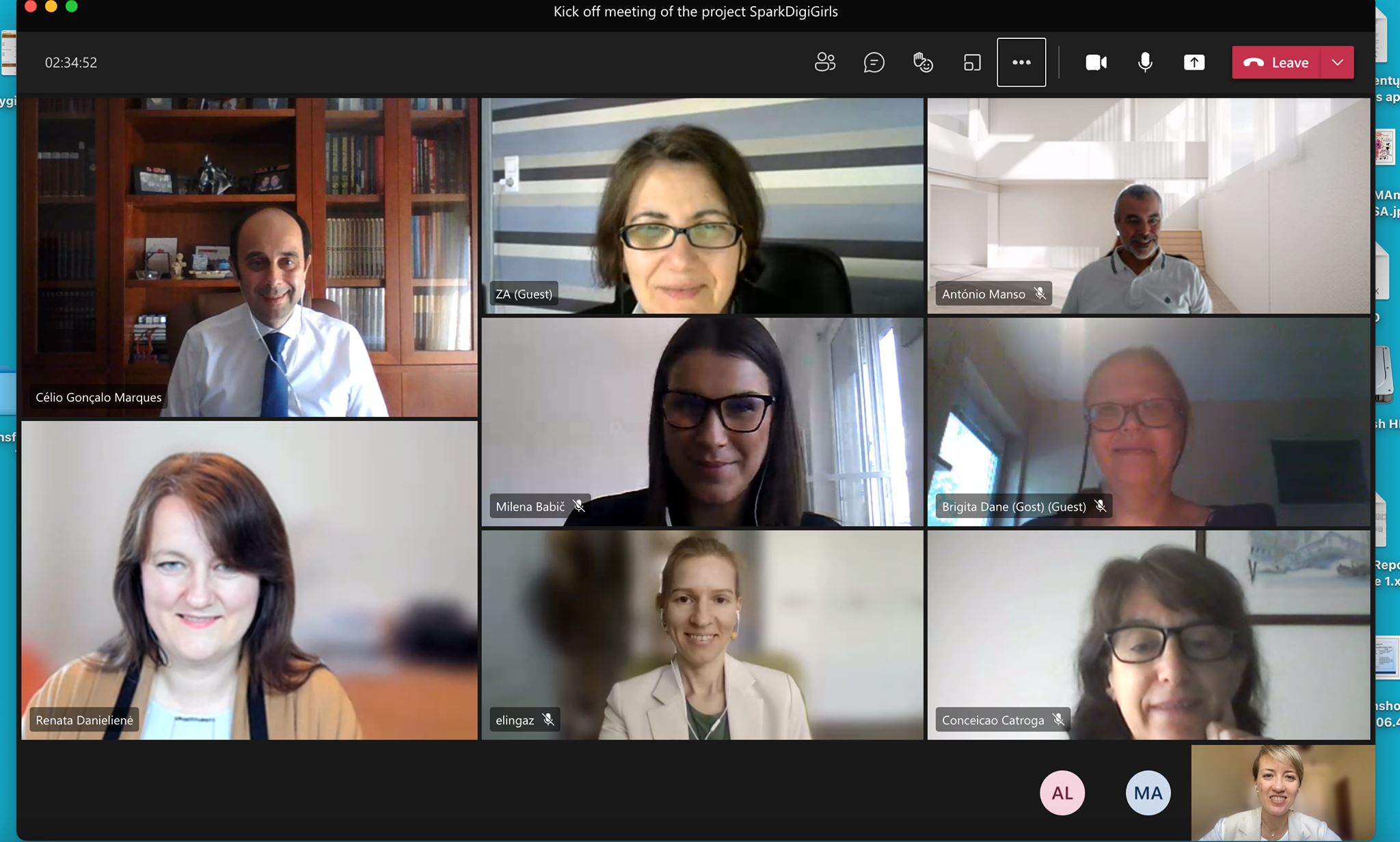
Girls' participation in STEM
Girls' participation (or lack of it) in STEM and ICT has become an important issue for business, education and policy makers. In response to today's issues, the report presented in this report has been produced as part of the Erasmus project SparkDigiGirls. The project aims to identify the factors that hinder girls and young women from pursuing a career in ICT and to provide tools and guidelines to address these issues.
The report summarises roundtable discussions with 37 experts working in the IT sector, education organisations and the public sector in Lithuania, Greece, Slovenia and Portugal. The insights gathered show that gender stereotypes persist, as well as misconceptions about the nature of ICT work. It also highlights the importance of teachers and educators, as well as the visibility of female role models in the field. Investing in concrete and creative activities in ICT is also a crucial factor in stimulating girls' interest in the field.
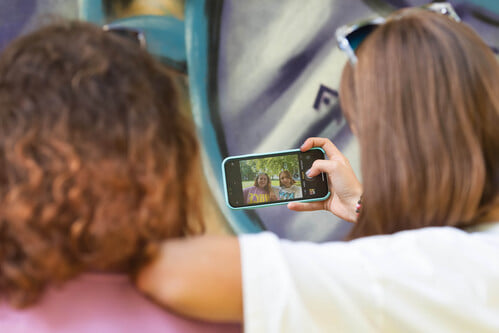
Partner meeting in Greece
7-8 June The second partner meeting of the international SparkDigiGirls project took place in Athens, Greece, on 7-7 June. Representatives from the Public Internet Access Points Association, the Public Information Technology Institute and other partners from Slovenia, Greece and Portugal attended the meeting.
The meeting focused on the development of a new distance learning programme aimed at stimulating girls' interest in technology, and on the presentation of solutions and training content.
The programme will be available in five languages for girls aged 13-18 this autumn. If you are interested in the project and would like to participate in the pilot phase of the new programme in the autumn, we welcome your emails to: asociacija@vipt.lt.
Link to the website: http://digigirls.eu/. The project is funded by the #Erasmusplus programme.
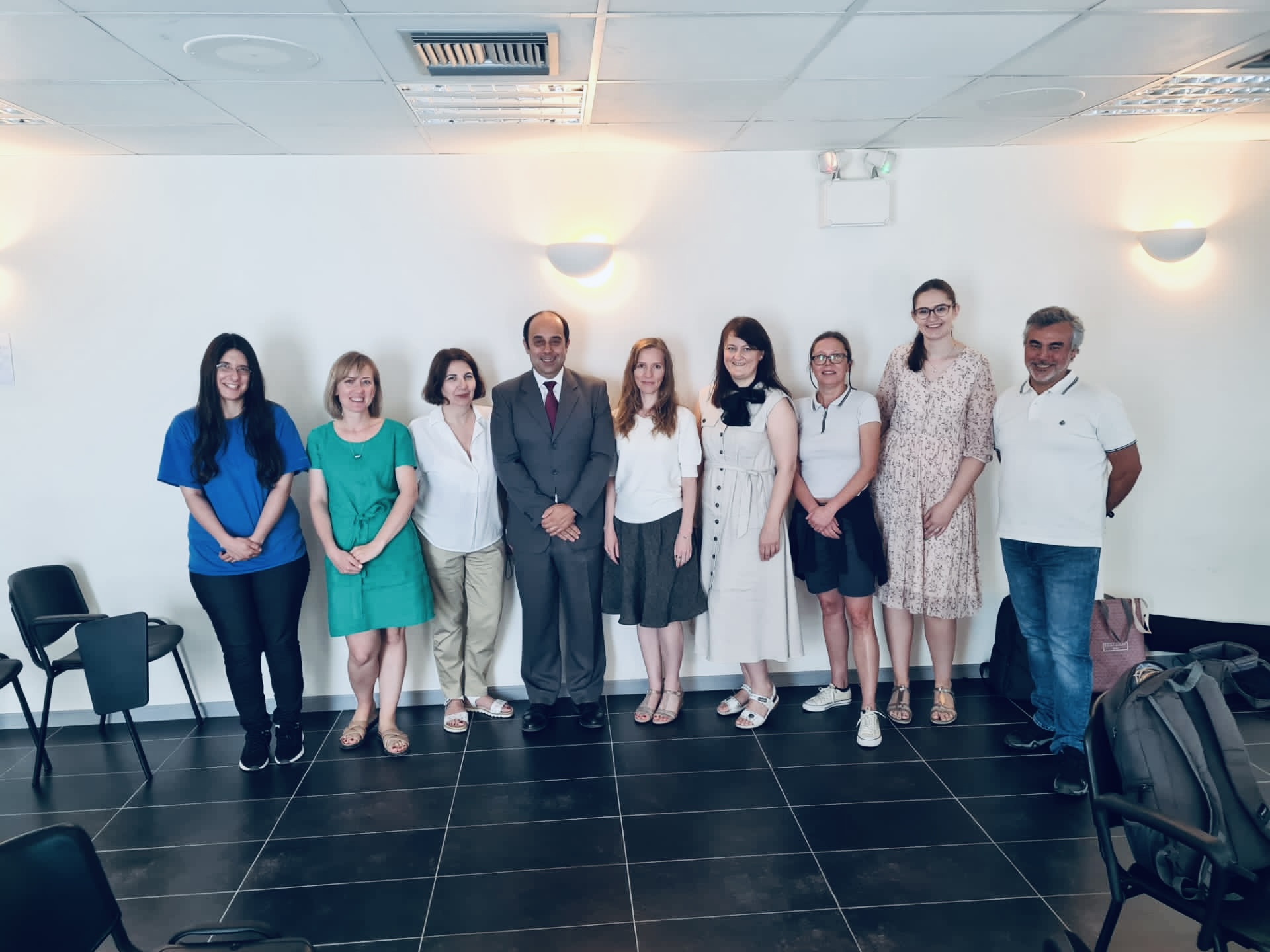
Partner meeting in Vilnius
In the last days of the summer, RIAP Association was happy to host the SparkDigiGirls partners meeting in Lithuania. Representatives from Greece, Lithuania, Slovenia and Portugal gathered for the two-day event.
As a new learning programme will be developed at the end of next year to foster girls' interest in technology, the partners' meeting focused on finding solutions and proposals for the new distance learning programme and its content.
During the meeting, experts in their respective fields shared their knowledge on the latest innovative technologies, digital tools, suggested topics and scenarios that would break the stereotypes of girls in technology and increase their interest in IT and its application in their everyday activities or favourite fields.

Addressing the factors hindering women's entry into IT
Addressing the factors hindering women's entry into IT, the RIAP Association, together with organisations from Lithuania, Greece, Slovenia and Portugal, launched in May 2021 the project "Girls in the Digital World: Smart and Creative", which aims to engage 15-18 girls in digital technologies (such as artificial intelligence, virtual and augmented reality, Internet of Things, robotics) through their creative use in their everyday activities.
Over the two years of the project, the association and its partners will aim to change stereotypes and societal beliefs about the female gender and technology, to strengthen digital literacy skills and open up new opportunities for creativity, and to encourage girls to pursue IT or STEM studies after leaving school.
The international project "Girls in a digital world: smart and creative" is funded by the Erasmus+ Strategic Partnership for Youth Programme.
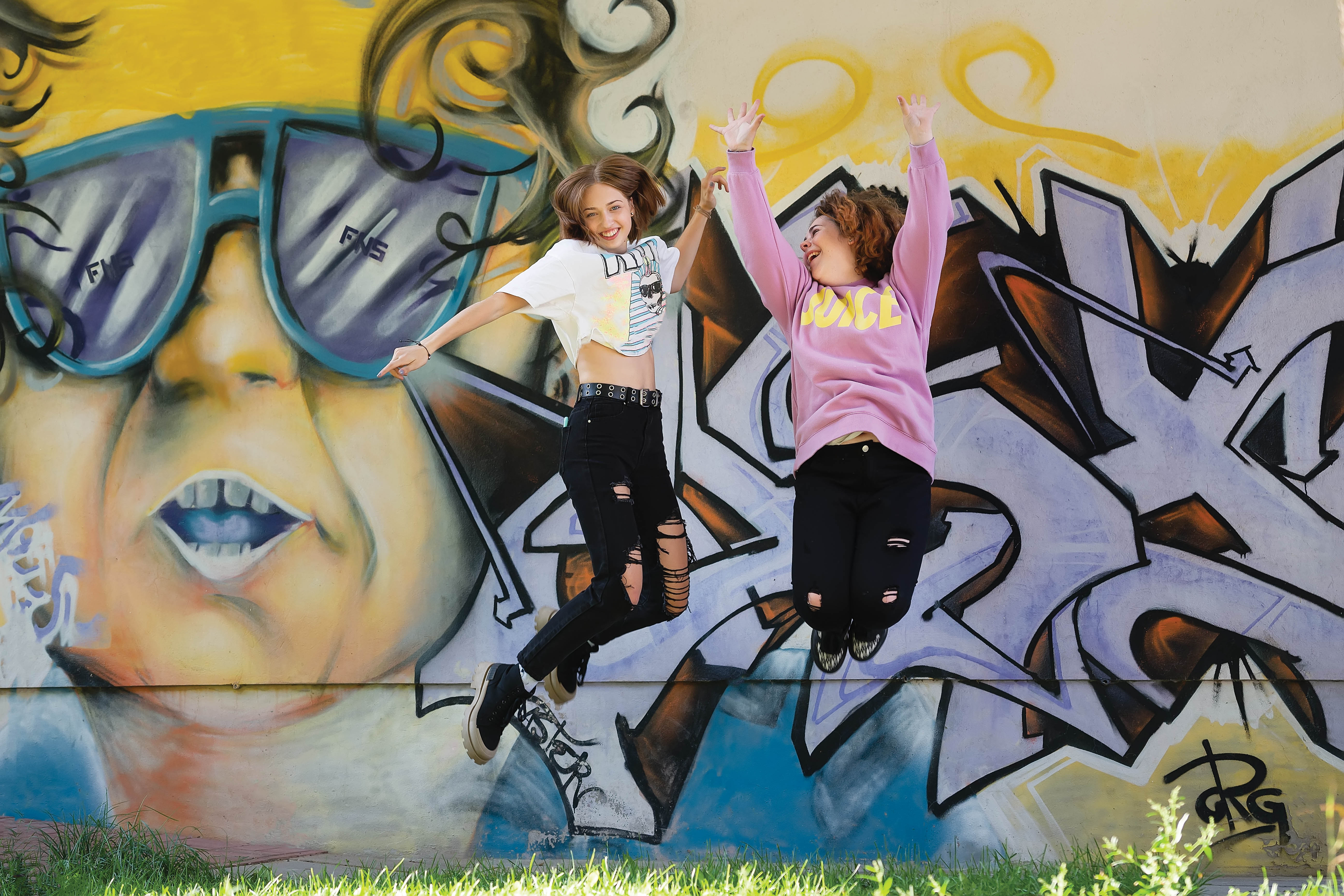
Unleash girls creativITy with technology
Today women in technology are still a
minority. According to the Women in Digital Scoreboard (2021)
which covers EU member state countries, gender disparity is indeed a prevalent
factor in the technology sector. Only 19% of ICT specialists and about
one third of science, technology, engineering and mathematics graduates are
female. Female interest in ICT and STEM subjects drops far too
early, and evidently by influence of broader social factors, which ought to be understood
and tackled.
Therefore, ALL DIGITAL members Hellenic University from Greece, Simbioza
from Slovenia together with other partners in Lithuania (RIAP association,
Information Technology Institute) and in Portugal (Polytechnic Institute of
Tomar) are running two-years Erasmus funded project Empower
Girls Creativity Through the Use of
Digital Technologies (SparkDigiGirls).
This winter
a new online program Unleash CreativITy with
Technology was launched in five
languages English, Slovenian, Lithuanian, Portuguese, and Greeks. The program aims
to support girls age 14+ to uncover creative and innovative problem solving of
different daily life situations with the help of digital technologies such as
AR, AI, Cloud Computing, 3D modelling&printing, Blockchain, etc.
Online programme consists of 16
separate learning modes called challenges. Each challenge covers a specific
topic or area of interest of young girls. For example, fashion, design,
environment, culinary, art, etc. Each challenge includes two essential intertwining components: digital technologies and real-life
situations or problems that young girls face in their lives. Girls are invited
to make a birthday present in 3D, create clothes using programming, design own virtual
room by using AR tools, create music by AI, culinary web-site and NFTs and many
other challenges.
Over the course of the project the consortium of partners are
tackling stereotypes and societal beliefs on gender and technology, strengthen
girls’ digital literacy skills as well as encourage
girls to pursue IT or STEM studies after graduation of high
school.
Access to online program Unleash CreativITy with Technology (only
for registered users): https://moodle.digigirls.eu/course/view.php?id=2
Instagram account: SparkDigiGirls
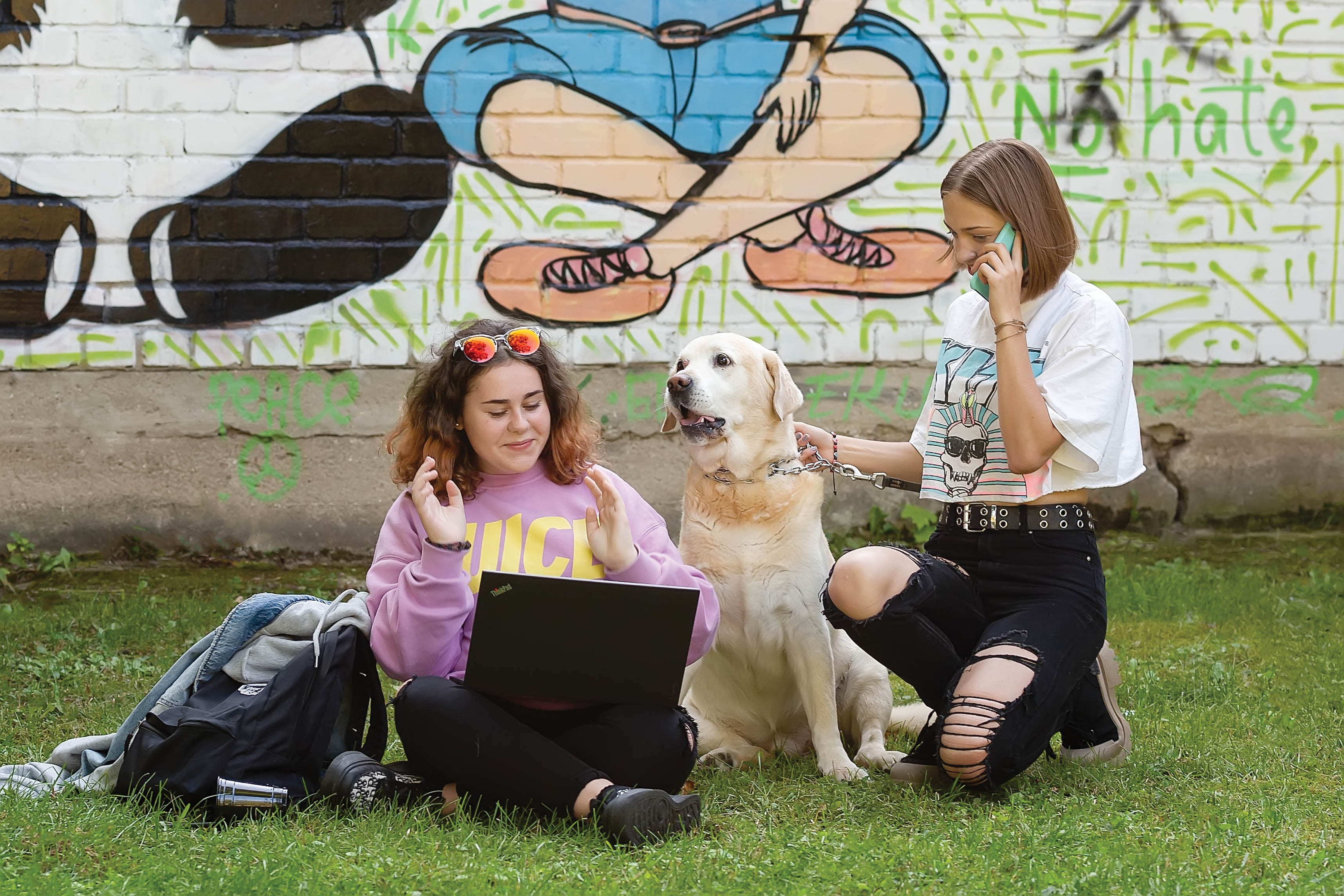



.png)

.png)




.png)










